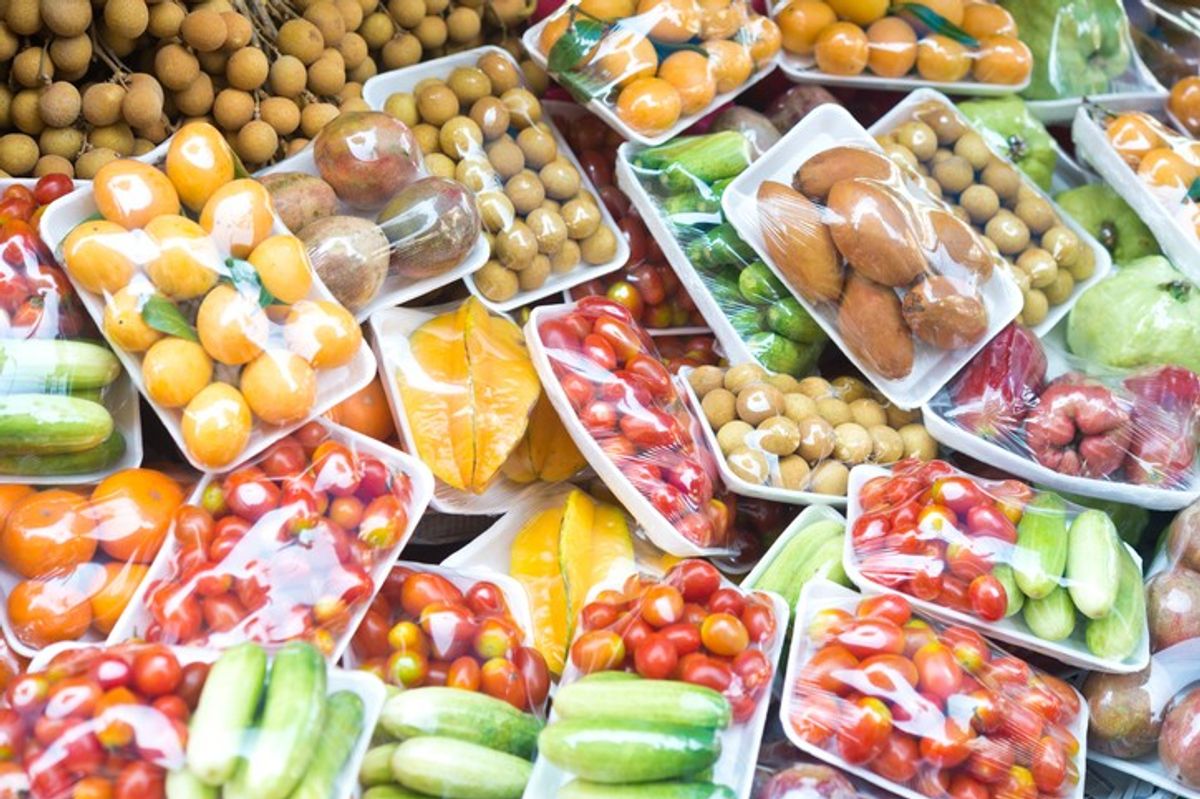Plastic packaging for fresh produce, such as apples, onions and potatoes, could be banned as part of a broader set of waste-reduction measures expected to be announced in the coming weeks.
Experts believe that forcing shops to sell loose fruits and vegetables would improve not just recycling rates but would also reduce food waste.
The measure is advocated by Waste and Resources Action Programme (WRAP), a UK environmental NGO aligned with the Labour Party.
According to the NGO’s estimates, removing packaging from these 21 types of produce could prevent 100,000 tonnes of food waste and 13,000 tonnes of plastic film waste each year, representing a significant environmental benefit.
The initial phase of the proposed ban focuses on items including apples, bananas, potatoes, and salad tomatoes. WRAP notes that these products are either robust or naturally protected by their skins, making plastic packaging unnecessary.
According to The Times, government advisers on the circular economy task force, a group of scientists, engineers, business leaders and charity bosses, are discussing including the packaging ban in proposals to be published for consultation later in the autumn.
If approved it would be the biggest change to the rules governing retail plastic use since the introduction of the plastic bag levy in 2015.
Wrap, which has a seat on the circular economy taskforce, published research last year which estimated that banning packaging on 21 fruit and vegetable items would save 13,000 tonnes of single-use plastic film.
It would also stop 100,000 tonnes of food being thrown away, enough to fill 14 million shopping baskets.
Catherine David, WRAP chief executive, said, “Our research has found that if you remove the plastic packaging you also reduce food waste, because people buy less. They say, ‘I only need two apples, I don’t need all six in that packet’.
“You’ve heard of ‘shopping the rainbow’ as dietary advice. If I don’t have to buy a kilo of potatoes, if I can buy just the potatoes I need, then there’s an opportunity to encourage me to buy parsnips or carrots and other veg as well."
“The average family of four is spending £1,000 on food each year that’s going in the bin.
"I don’t think anyone is choosing to do that. Nobody is thinking ‘I’ve got a grand to burn on food waste in my family’. So what can we do to help reduce that? Loose fruit and veg is one thing that can help.”
Many stores and some supermarkets allow shoppers to choose between pre-packaged fruit and vegetables, and loose produce not in plastic wrap.
The Department for Environment, Food and Rural Affairs said, “Ending our throwaway society and reducing household food waste is a crucially important step towards a circular economy.
"Cutting waste in our food supply chain is one of the key areas of focus for our circular economy taskforce and we support businesses in their efforts to help people waste less food at home.”


